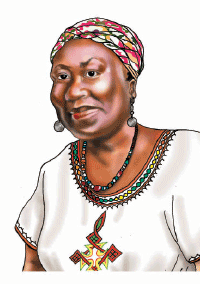It was surprising and quite revealing to hear a serving governor tell me recently that he had told a man who had contested the governorship of their state with him: “Oh, go and sit down somewhere; you’re not a politician.” We got talking because we had run into each other at the airport and I thought it was proper for me to congratulate him on his recent victory. This governor knew his fellow contestant very well and even referred to him as “my brother”; an individual who was known for his personal discipline and intelligent approach to finding solutions to knotty issues. Yet, the governor asked him to go and sit down; he was not a politician and should not aspire to be one. So, who should be a politician?
Obviously, for the governor under consideration here, the politician should not be a self-respecting, dignified, disciplined, hard-working individual who would approach issues dispassionately and intelligently, having primarily the interest of the people at heart. Not at all. For him, the politician is the one who is able to wheel and deal, speak with both sides of the mouth, commit the state’s resources to the service of special and vested interests, and be ready to do whatever is necessary to protect those interests. The politician, as conceived by our Mr. Governor and the vast majority of those who currently occupy that sphere in our nation, is an individual who is driven by personal ambition for gain – be it pecuniary, or having to do with power and influence. And that is precisely what we have been witnessing being played out at our National Assembly this past week.
It is disheartening that a party would ride into power so triumphantly, bearing the standard of “Change!” and filling millions of hearts with such great expectations – and then end up with the kind of charade that greeted the inauguration of a National Assembly in which that party was to be in the majority. It was clear that the interests of the people had neither been the primary concern nor the focus of the intra-party discussions that took place during the period between the conclusion of the elections and the inauguration of the new government. Had that been the case, things would have played out differently.
Instead, what we have before us are legislators most of whom are steeped deep in self-interested strategic positioning and maneuverings, scrambling for what they regard as their own portion of the national cake. They seem so far unwilling to concede even the smallest of their perquisites, this in spite of their awareness of the current hardship being undergone by most Nigerian civil servants who are being owed several months of salaries. They are set to collect over half a million naira each for their wardrobe allowance and millions more as other perquisites of their exalted office. Are these the politicians we have elected with the hope of bringing about the change which we so much desire? When will justice and good governance for the people take centre-stage in their considerations? Is this what it means to be a politician?
Had there not been examples of other politicians around the world from whom one could draw lessons and inspiration, one would have been dissuaded from pursuing one’s interest in politics – which, apparently, is the intention of Mr. Governor: to keep the honest people out. The normal, traditional Nigerian politician does not really want disciplined and principled individuals with integrity to join their ranks, for their coming and insistence on fairness to all, submission to the rule of law and uprightness in handling all public affairs would expectedly throw a spanner in the works. But then, which country ever became developed by accepting Mr. Governor’s kind of understanding of who a politician is and what a politician does? Is it an “act of God” (for we Nigerians are often quick to lay our misfortunes at God’s doorstep) that our situation is constantly worsening? Is it not a direct consequence of the kind of people we are electing to run our affairs?
It is time for an army of decent, upright, intelligent and public-spirited people to take over the governance of this nation. I am particularly looking at the younger generation – people between the ages of 30 and 50 – to start getting interested in politics and begin to run for public office. Yes indeed, like former United States President Bill Clinton is famously quoted as saying, “The power to do public good does not depend on holding public office”; however, doomed is that nation that leaves the running of its public affairs entirely in the hands of people who are not intentioned to do good. That “good” involves setting aside self-gratification and pursuing the common interest.
According to the website of The King’s College of New York City, “[p]olitics is the realm in which we attempt to realize some of our highest aspirations: our desire for political freedom, our longing for justice, our hope for peace and security”, even though some questionable characters sometimes get involved. It becomes clear, however, that if truly we as a people have these normal human longings for freedom, justice, peace and security – what can generally be referred to as “the good life” – then, we must devise ways to ensure that the majority of those who conduct our business are those who can deliver those “goods” to us.













